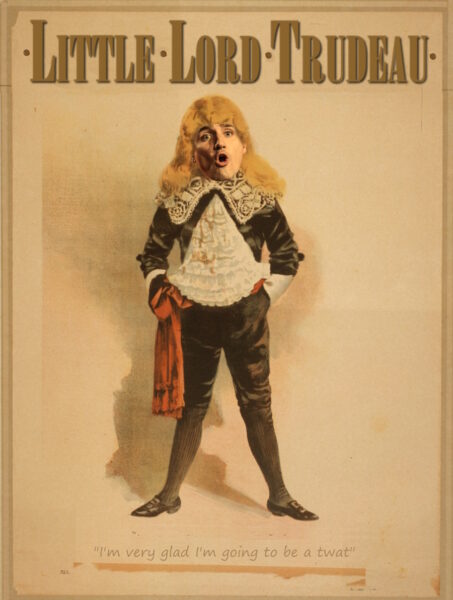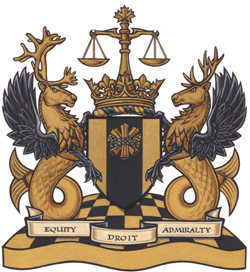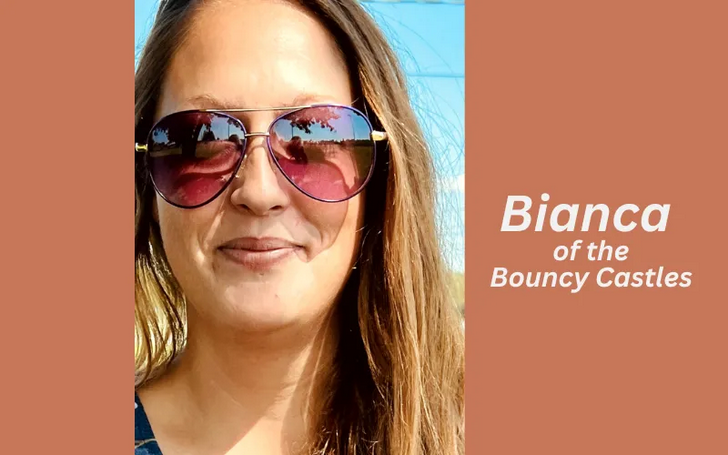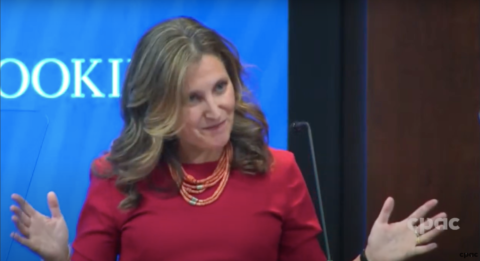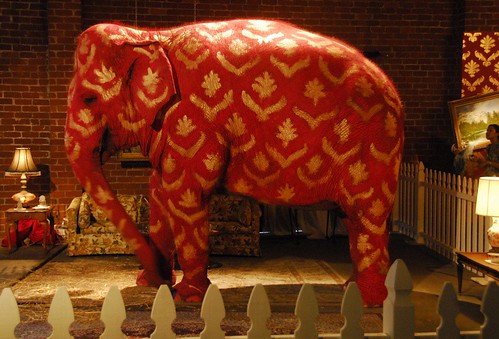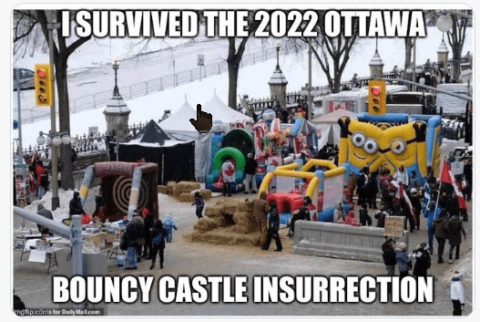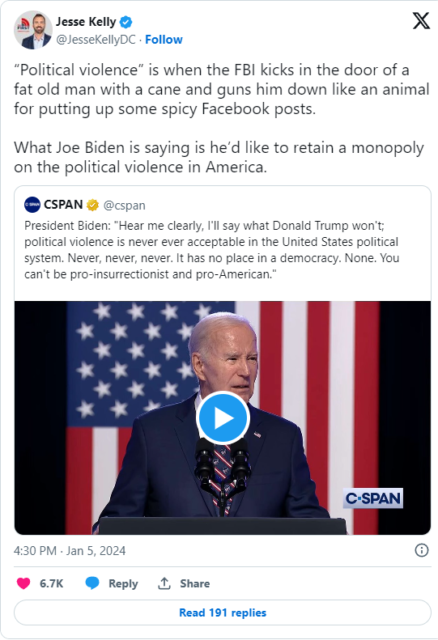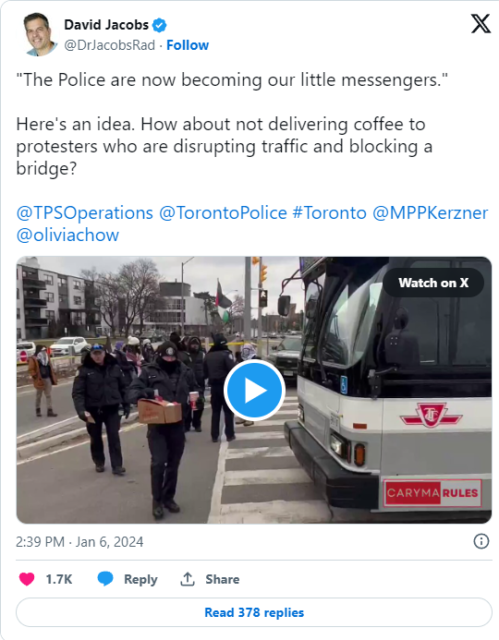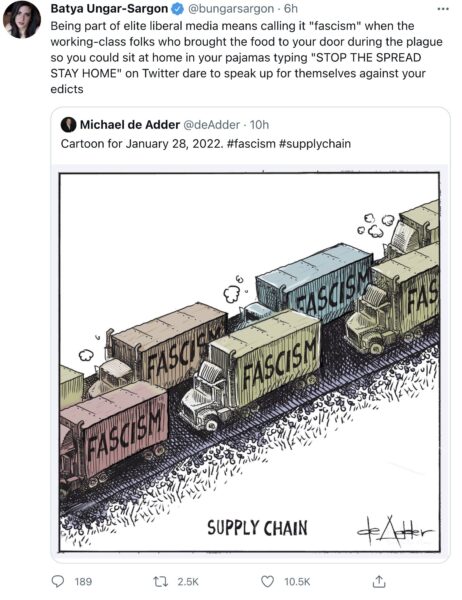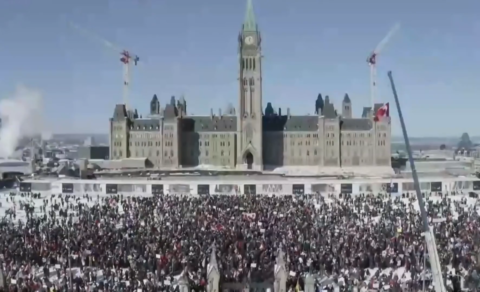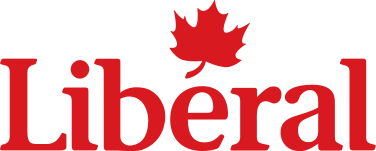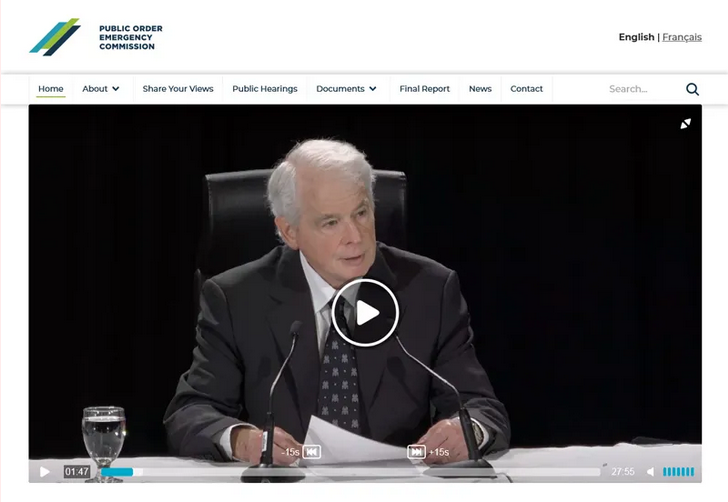Paul Wells shares some thoughts on the unsettled waters of normally placid (if not catatonic) Ottawa in the wake of Chrystia Freeland’s dramatic resignation on Monday:
I want to write 5,000 words of narrative in the wake of Chrystia Freeland’s resignation, but we’re still in the middle of the story. Thoughts kind of pour out. I found myself telling La Presse, “‘What the f—k?’ has replaced ‘Hello’ as the standard greeting in Ottawa since Monday.” We’ll see whether they use that quote.
Here are some thoughts, from different angles. I don’t know whether Freeland’s resignation will blow over, the way Justin Trudeau’s last 20 messes did, because I don’t have a crystal ball, but I think Justin Trudeau hopes it’ll blow over. Because he always hopes it’ll blow over. I hear, as you do, rumours that the PM will resign.
[…]
I resist biography as an analytical tool. People outgrow their backgrounds all the time.
But just about everybody who follows politics has been wondering how Trudeau could fire his most loyal lieutenant by a Zoom call three days before he needed her to deliver a crucial fall economic statement. If the Globe‘s latest story is true, and he told her Mark Carney would take the job without knowing whether Carney will take the job, that’s even wilder. Who does that?
The short answer is, somebody who is used to getting his way. Then you look at Trudeau’s life and you think, why wouldn’t he expect to get his way?
The rich kid always knows the normies will cover for him. If he needs a ride, some kid with stars in his eyes will wave his keys and volunteer. If he’s hung over he can borrow the lecture notes. He shows up in racist makeup to yet another party — forcing every other person in the venue to decide how to respond — and once again nobody stands up to him or makes a fuss. Indeed, when the record of that behaviour threatens his political career decades later, there’ll be plenty of volunteers to criticize anyone who mentions the record, rather than criticizing the guy who acted like that.
He runs for the leadership of a national political party on a platform of “I’ll tell you what I stand for after I win”. He mentions carbon pricing precisely one time at his first national leaders’ debate. He dumps his electoral-reform promise at the first hurdle, and later, when asked about it, he blames the person who asks. He gaslights Canada’s first Indigenous attorney-general for months, but he is not particularly kinder to her replacement, who is ejected from Cabinet because, I don’t know, it’s Wednesday or whatever. He lets a 72-year-old man run for re-election and only after it’s over does he let the guy know he’s getting dumped from Cabinet.
He fires the Clerk of the Privy Council by news release while travelling.
In particular, if there’s anyone in the world he might have expected to tolerate the kind of high-handedness we’re hearing about Friday’s Zoom call, it’s Chrystia Freeland. Her eagerness to endorse him in the immediate aftermath of his latest cockup has been such a reliable feature of Canadian public life it’s devolved into a kind of shtick. SNC-Lavalin, 2019: “she has absolute confidence“. Blackface, six months later: “tremendous confidence“. WE Charity, 10 months after that: “The prime minister has my complete confidence“.
Perhaps only Jagmeet Singh has shown more confidence than Freeland, over the years, in Trudeau’s leadership. Given that record — and his own much longer record of taking advantage of others’ generosity — it’s not too much of a stretch to think that at some point he decided his deputy prime minister was just another easy mark.
Turns out that’s the kind of mistake he only needed to make once.

